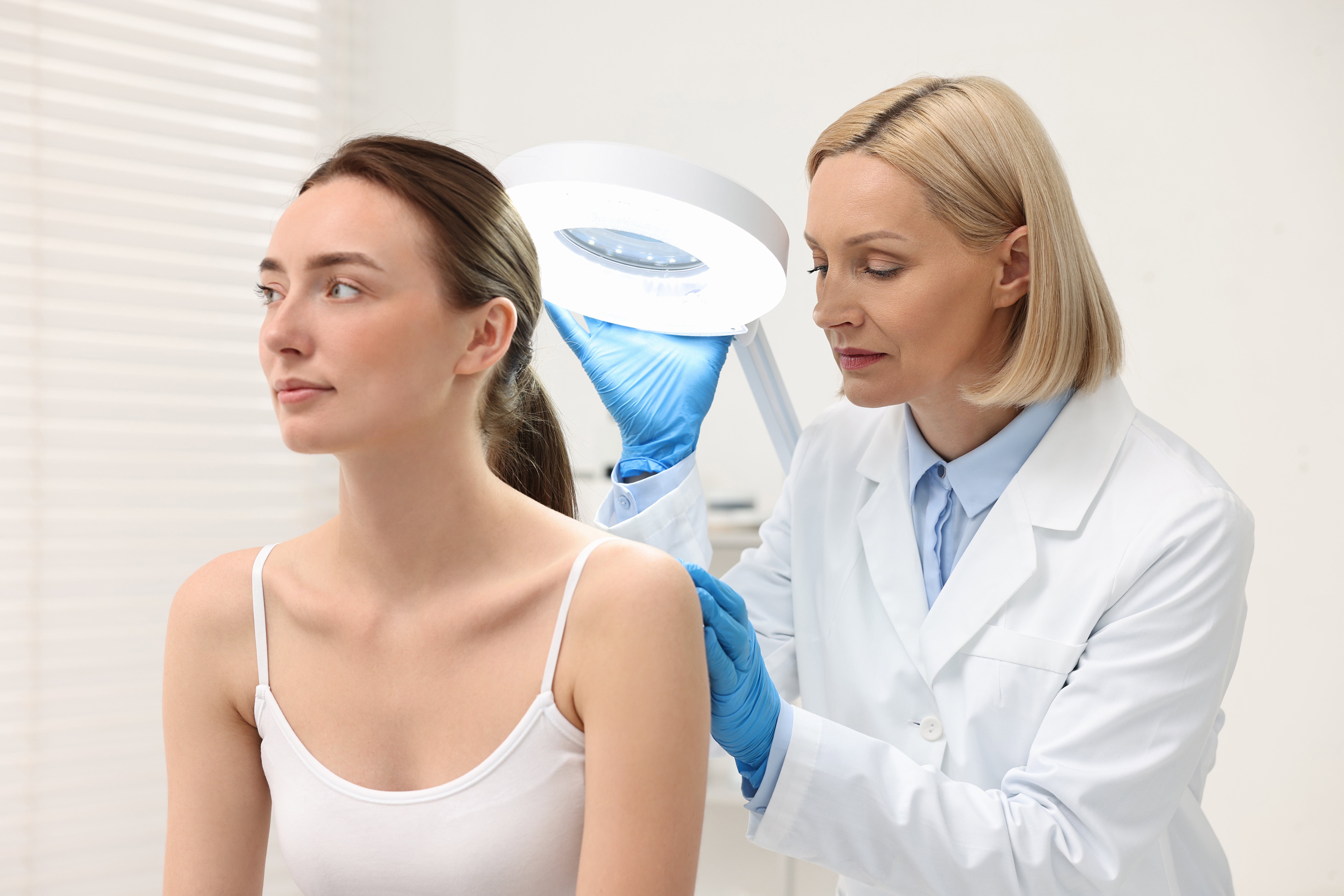Living in a warm, humid climate like Florida can be both a blessing and a challenge for your skin — especially if you have eczema. The same moisture-rich air that keeps skin from drying out can also create the perfect conditions for sweating, irritation, and flare-ups.
Eczema, also known as atopic dermatitis, is a chronic skin condition that causes dryness, itching, and inflammation. While there’s no single cause, flare-ups often occur when environmental, lifestyle, or internal triggers upset the skin’s natural barrier. Understanding these triggers — and how to minimize them — can make a big difference in daily comfort and long-term skin health.
What Causes Eczema Flare-Ups?
Eczema isn’t contagious and doesn’t have one definitive cause. It develops from a combination of genetics, immune system responses, and environmental factors. In people with eczema, the skin barrier doesn’t retain moisture effectively, making it more sensitive to irritants and allergens.
Common triggers include:
- Heat and sweating — Trapped moisture and salt can irritate the skin.
- Humidity changes — High humidity can cause excess sweating; low humidity can dry the skin.
- Harsh soaps and detergents — Fragrance, alcohol, and sulfates strip away protective oils.
- Allergens — Dust mites, mold, pollen, and pet dander often trigger inflammation.
- Stress — Emotional stress can release hormones that aggravate eczema.
- Clothing fabrics — Wool or synthetic materials can trap heat and cause irritation.
- Dietary sensitivities — Certain foods may worsen symptoms for some individuals (such as dairy or gluten).
Identifying your unique triggers is key to preventing future flare-ups.
How Humidity Affects Eczema
Florida’s humid climate creates unique challenges for people with eczema. While humidity helps prevent skin from becoming too dry, excessive moisture combined with heat can lead to increased sweating and bacterial growth — two common flare-up triggers.
Here’s how humidity can impact your skin:
- Sweating and salt buildup — Sweat irritates eczema-prone skin and may cause stinging.
- Yeast and bacteria growth — Warm, moist conditions promote microbial overgrowth.
- Clogged pores — Heavy moisturizers and sunscreen can mix with sweat, leading to irritation.
- Sticky discomfort — Constant dampness prevents skin from “breathing,” causing itching and redness.
Balancing moisture and temperature is essential for managing eczema in Florida’s climate.
Tips for Managing Eczema in Humid Weather
The goal isn’t to avoid humidity — it’s to manage it wisely. These dermatologist-approved tips can help reduce flare-ups and protect your skin barrier:
1. Stay Cool and Dry When Possible
- Wear lightweight, breathable fabrics like cotton or linen.
- Shower after sweating and pat skin dry instead of rubbing.
- Avoid outdoor activity during peak heat hours (10 a.m. to 4 p.m.).
- Use fans or air conditioning to keep indoor environments comfortable.
2. Choose the Right Moisturizer
- Opt for fragrance-free, non-greasy formulas labeled for sensitive skin.
- Lightweight creams or gels work best in humid weather — heavy ointments may trap heat.
- Apply moisturizer within three minutes of bathing to lock in hydration.
3. Simplify Your Skincare Routine
- Use gentle cleansers without sulfates or alcohol.
- Avoid harsh scrubs or exfoliants.
- Stick to lukewarm water for washing — hot water can worsen dryness and inflammation.
4. Be Mindful of Laundry and Detergents
- Choose hypoallergenic detergents without dyes or fragrances.
- Avoid fabric softeners or dryer sheets that leave residue.
- Rinse clothes twice to remove detergent buildup.
5. Manage Stress
Stress is a known eczema trigger. Incorporating relaxation techniques like yoga, deep breathing, or gentle exercise can help regulate immune responses and prevent flare-ups.
6. Keep Showers Short and Moisturizing
- Limit showers to 5–10 minutes.
- Use warm, not hot, water.
- Moisturize immediately after to seal in moisture.
7. Avoid Common Irritants
- Fragranced body products
- Alcohol-based sanitizers
- Chlorine from pools (rinse off afterward and apply moisturizer)
- Certain sunscreens — choose physical (mineral) SPF options with zinc oxide or titanium dioxide.
How to Prevent Flare-Ups During Florida’s Summer Months
Summer in Florida means more sun, heat, and outdoor activity — all of which can aggravate eczema. Preventing flare-ups starts with consistent daily habits.
Try these summer-specific strategies:
- Apply sunscreen daily — Even on cloudy days; mineral formulas are less irritating.
- Moisturize twice daily — Morning and night, focusing on elbows, knees, and hands.
- Carry wipes or a damp cloth — Gently pat away sweat instead of wiping roughly.
- Stay hydrated — Water supports skin elasticity and overall barrier health.
- Use a humidifier indoors during air-conditioning season — Helps balance moisture levels indoors.
If you notice consistent patterns (such as flare-ups after outdoor exercise or swimming), note them in a journal. Tracking triggers can reveal valuable insights for long-term management.
When to Seek Professional Help
Eczema can often be managed with lifestyle adjustments and over-the-counter creams, but some cases need professional attention. You should see a dermatologist if:
- Itching disrupts sleep or daily activities.
- Over-the-counter creams aren’t providing relief.
- You notice open sores, oozing, or signs of infection.
- Flare-ups occur more frequently despite routine care.
- You’re unsure if your rash is eczema or another condition like psoriasis or contact dermatitis.
A dermatologist can help identify your triggers, prescribe medicated creams, or suggest advanced therapies like light treatments or biologics for more severe cases.
Living Comfortably with Eczema in Florida
Managing eczema in Florida’s humid climate takes consistency and awareness, but it’s entirely possible to live comfortably with the right approach. By identifying your triggers, maintaining gentle skincare habits, and protecting your skin from excess heat and moisture, you can greatly reduce flare-ups and irritation.
At Pensacola Dermatology, our board-certified dermatologists offer personalized eczema treatment plans designed for Florida’s unique environment. Whether you need help identifying triggers, selecting safe skincare products, or finding long-term relief, we’re here to help you achieve calm, healthy skin.
Request your appointment today and take the first step toward comfortable, confident skin — no matter the weather.
